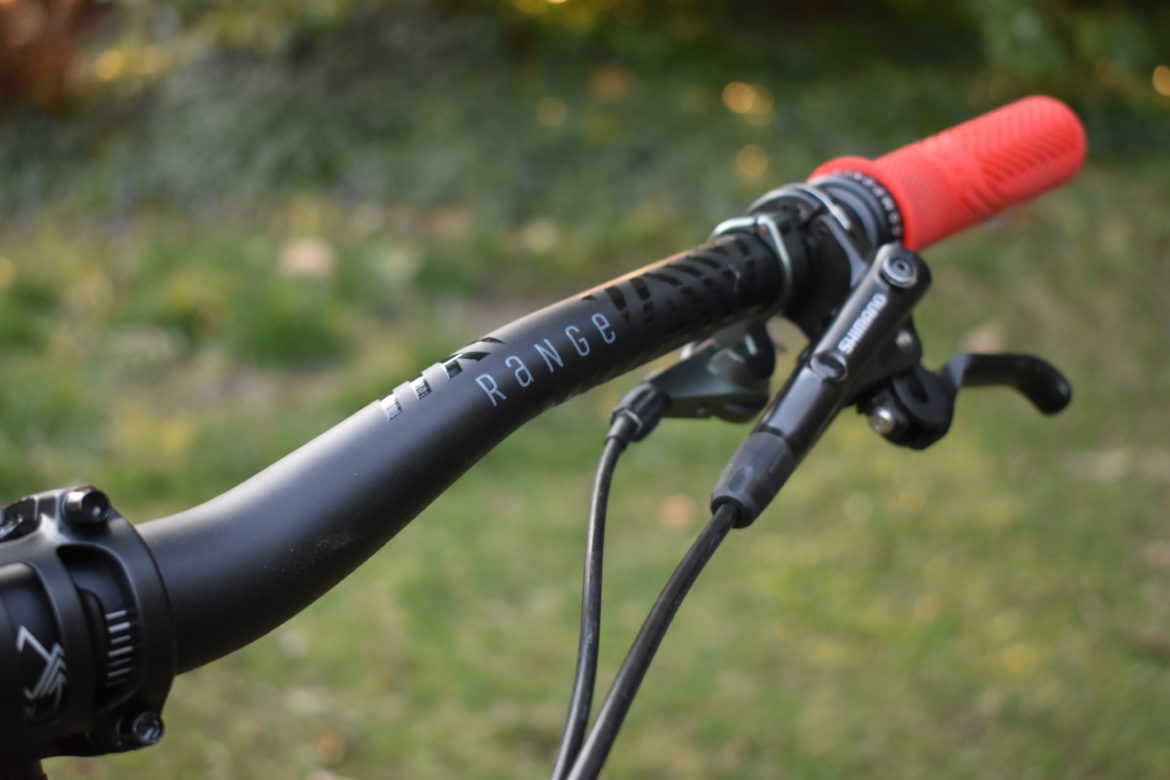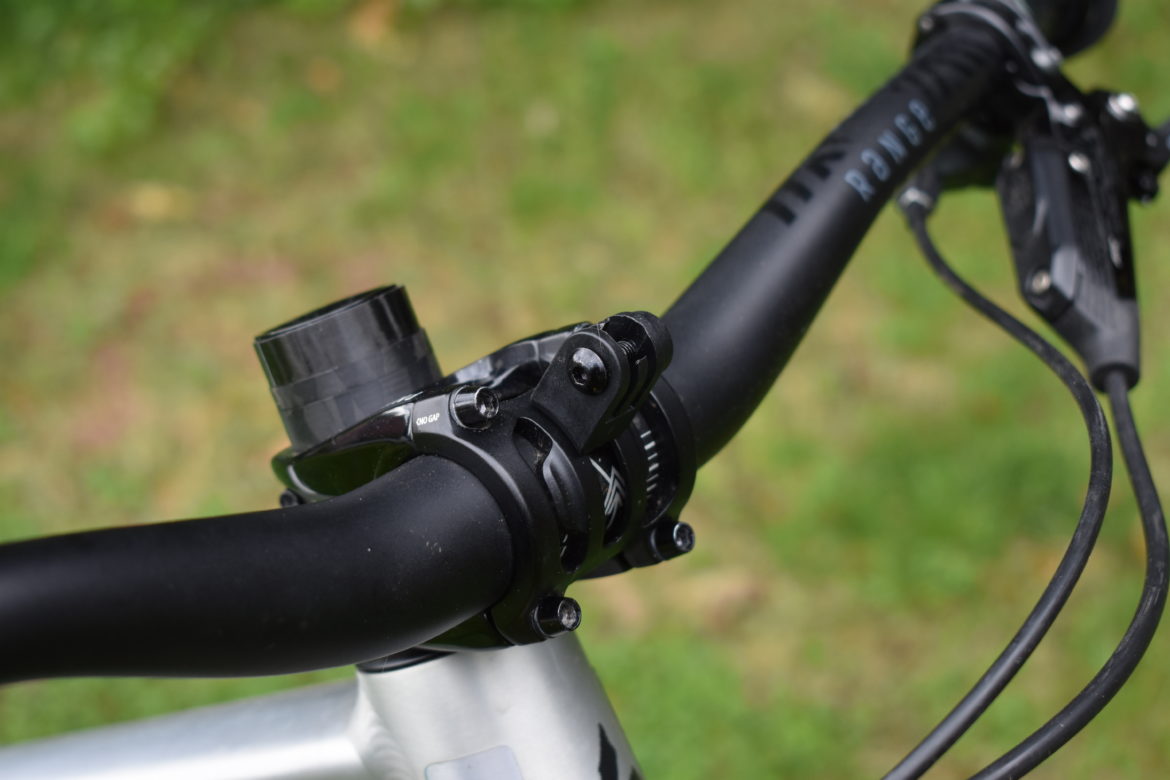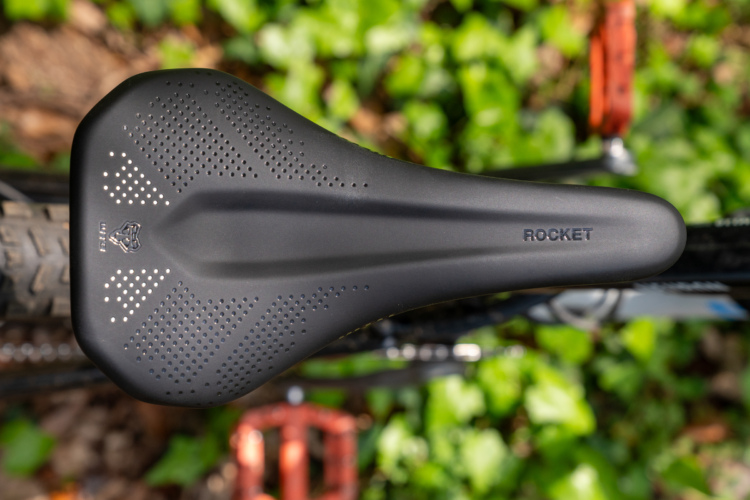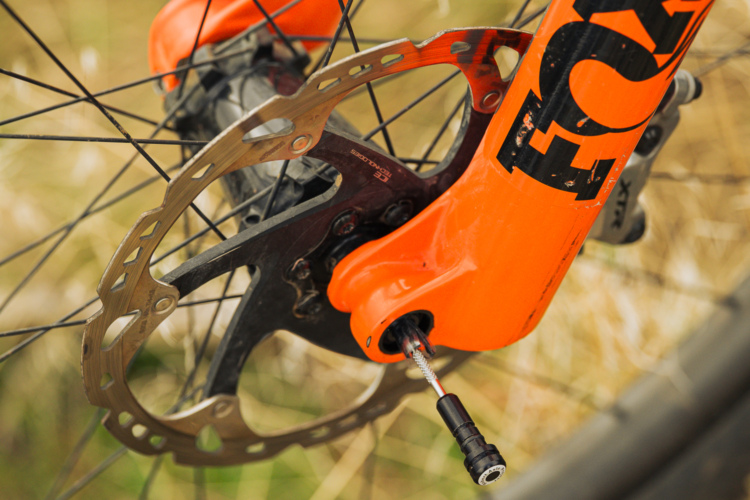
PNW should need no introduction for most people by now, but I’ll give them a quick one. They are a new-ish components brand based in Seattle, Washington with the aim of producing bike components that perform admirably without breaking the bank, all the while providing great customer service. PNW started with dropper posts, and they’ve recently branched out to cockpit components.
PNW achieves competitive pricing through operating direct-to-consumer like many companies, with design in house, and they also deal through local bike shops. I have a bit of a tough time with direct-to-consumer brands. Without nearby warranty support where you can physically speak to someone face to face, like at a local bike shop, it can be hard to feel at ease with a purchase sometimes. Though the products PNW make aren’t necessarily that complex, their service has been amazing and they’re genuinely a pleasure to deal with. Plus they now have the LBS avenue to make things even easier. What’s not to love?

Range handlebar
Okay, let’s start with the handlebar. This is the most interesting part of the equation, though the stem and grips have their own neat features too. There are many aluminum handlebars on the market right now, so what makes PNW’s new offering stand out from the crowd? Well, a couple of things and a short history lesson might be in order here.
The first interesting thing is the geometry of the handlebar that makes them great for all-around riding, or something I like to call ‘mountain biking.’ You know, where you just jump on a bike and go out for a ride. This is something I’ve found very interesting recently, and forgive me if it seems like I’m looking a little to deep here into what are essentially simple numbers. The Range handlebar comes with a 10º backsweep, 5º upsweep, 30mm rise, and 780mm width. The backsweep is an interesting number, as most bars have between 7º and 9º. It may sound like a small difference, but a whole degree can make a big difference in the head angle of a bike for example.
Too often manufacturers focus on optimizing bikes and parts for the most aggressive riding on the descent, which is great because the descent is the ‘sexiest’ part of mountain biking. In reality, most of us aren’t exactly keeping up with the likes of Aaron Gwin, and spend a lot more time climbing than we do descending. Our bikes should reflect that. In this case, those aggressive handlebars that have gotten wider and wider all the while retaining those old backsweep numbers can often end up making wrists and shoulders sore and uncomfortable since they sit too wide at an unnatural angle while climbing, especially with modern long-reach bikes. The Range handlebar does a great job of sitting just outside those traditional numbers and putting the wrists at a more natural angle, creating something that is noticeably more comfortable for a good long ride with lots of climbing and descending, without sacrificing control on the way down.

The next interesting point is that these bars are only available in the one configuration, with the same geometry numbers, diameter, and material, though they are available in four color options. The clamp diameter is the good bit here, at 31.8mm. History lesson number two is that 35mm diameter handlebars debuted to create stiffer bars. This works well for carbon bars, creating stiffness where it’s needed and giving space for designers to create compliance in other areas. The OneUp Carbon Handlebar is a great example of this.
With aluminum bars, it’s typically not as easy to build in compliance like carbon, so 35mm aluminum bars are just stiffer and tend to give a harsher ride. PNW recognized this, and only offers this bar in a 31.8mm diameter. This, combined with their 2014 aluminum alloy, is said to help keep them as compliant as can be. While it’s hard to make an aluminum handlebar super compliant, I didn’t notice these being overly harsh like 35mm bars can be, so I am pretty happy with them in that respect.
Other details
The Range KW Edition bar is dubbed as such because it’s a signature series for PNW-sponsored athlete Kyle Warner, and 5% of every sale goes to NICA – the National Interscholastic Cycling Association. The bar comes in four sweet color options: black with teal, orange, red, or grey. The graphics fit in with the rest of their design language and look modern and smart, yet understated. I really like them, and despite removing and re-fitting a whole bunch of times, they look like new. It’s not the lightest handlebar out there at 334g, but I’m happy to trade a few grams for comfort.
- Price: $69
- Available at Evo and other online retailers.

Range stem
The new Range Stem was launched earlier this year and is a welcome redesign of their older model, looking a lot less clunky. The redesigned Range stem is a smart looking item and fits with their Range bars nicely. It only comes in a 31.8mm clamp diameter, with a selection of 40mm or 50mm lengths for modern bike geometry. The faceplate is nice and wide for good clamping force and the rest of the stem is nice and stout, inspiring confidence.
While a stem is a stem for the most part and I’ve had no issues with this one, the Range stem also has an ace up its sleeve with its integrated action-camera/light mount. The previous generation of Range stem had a mount forged into the faceplate which appeared to be non-adjustable and a permanent addition which, if you just want to use it as a stem doesn’t look great. PNW has taken a different direction and made a threaded insert that slots inside the faceplate, making the mount both adjustable and removable if you don’t want to use it.
Update: Unfortunately after only a few uses, one of the pieces of plastic making up the camera/light mount on the stem broke, rendering it pretty much useless. I wasn’t too surprised given how thin this piece was but it’s still a little disappointing given that to me this is one of the selling features of the stem. PNW could easily remedy this however by providing perhaps a CNC’d aluminum mount instead. The part is pretty small and so probably would only add a few dollars to the price – something I’d be happy to pay for the added functionality.

While the stem-mounted camera isn’t your typical mounting option, with the advent of wide-angle 360º cameras the stem mount actually works really well to capture cool footage both looking forward and back. Bar mounts for heavy lights are also a constant source of frustration for me, moving and not pointing straight forward, as bars are never straight. This is a really nice solution to that problem. It’s almost a shame it’s not night riding season anymore.

Retailing at $55 USD the Range stem doesn’t break the bank and is a nice option for someone looking to upgrade their cockpit. The only gripe I have is that the bolts are a little soft and while I’ve been refitting them more than most people would, I can see the bolts rounding out at some point so I would like to see some higher quality bolts in there.
Loam grips
The final part of PNW’s cockpit trifecta is their new Loam grips, retailing for $19 USD. Launched around the same time as the Range handlebar, PNW is clearly going for a one-stop cockpit setup, and the Loam grips complete that. Keeping things simple, as with the bars and stem, the Loam grips are available only in one diameter, which is thin. However, they come in 5 colors that match the handlebars and the rubber pad on the Loam dropper post lever, so you can get your cockpit colors dialed.

The Loam grips are made from a 25a durometer rubber compound that’s nice and grippy but doesn’t feel like it should wear too fast. The grips only clamp at one end and the clamps are nicely finished and lock in place with a sturdy 3mm hex bolt. Despite the single clamp, they feel plenty solid and never move around.

The Loam grips have a sort of ribbed pattern that I could feel moving a little under my grip. That felt a little odd at first, though I did get used to them and they felt pretty good. They’re certainly comfortable and I liked the curved flange on the inboard end as it gives your hands somewhere to stay.
Final thoughts
The Range cockpit with Loam grips is nicely thought out and provides some really nice features, especially for the asking price. The bars and stem offer a great alternative setup for modern geometry bikes, particularly for riders who want to enjoy the climbs almost as much as the descents and to really get their ride dialed in terms of comfort. Additionally, the packaging for all of these components was made from recyclable cardboard with zero single-use plastics. Good job PNW!
There are some improvements that I’d like to see, like the stem hardware that I mentioned. Mostly I’d just like to see a wider range to cater to a wider audience, though I don’t want to jump the gun here as PNW is pretty fresh in the cockpit arena and I wouldn’t be at all surprised if they were working on some of these suggestions already.
A second wider diameter grip option would be great for those of us with bigger hands. A 35mm clamp diameter stem would be awesome for people that want the benefit of the camera/light mount with a wider diameter bar. Finally, a 35mm diameter carbon bar with the same geometry as the Range bar would be super cool. It’s hard to deny the compliance that can be achieved with a carbon bar over aluminum, regardless of specific alloy properties, and I would love to see a bar from these guys that marries the vibration damping of carbon with the comfortable geometry of the Range bar. Here’s hoping PNW doesn’t slow down any time soon because it’s been great to see all of the cool, affordable products they’ve been creating.




















0 Comments